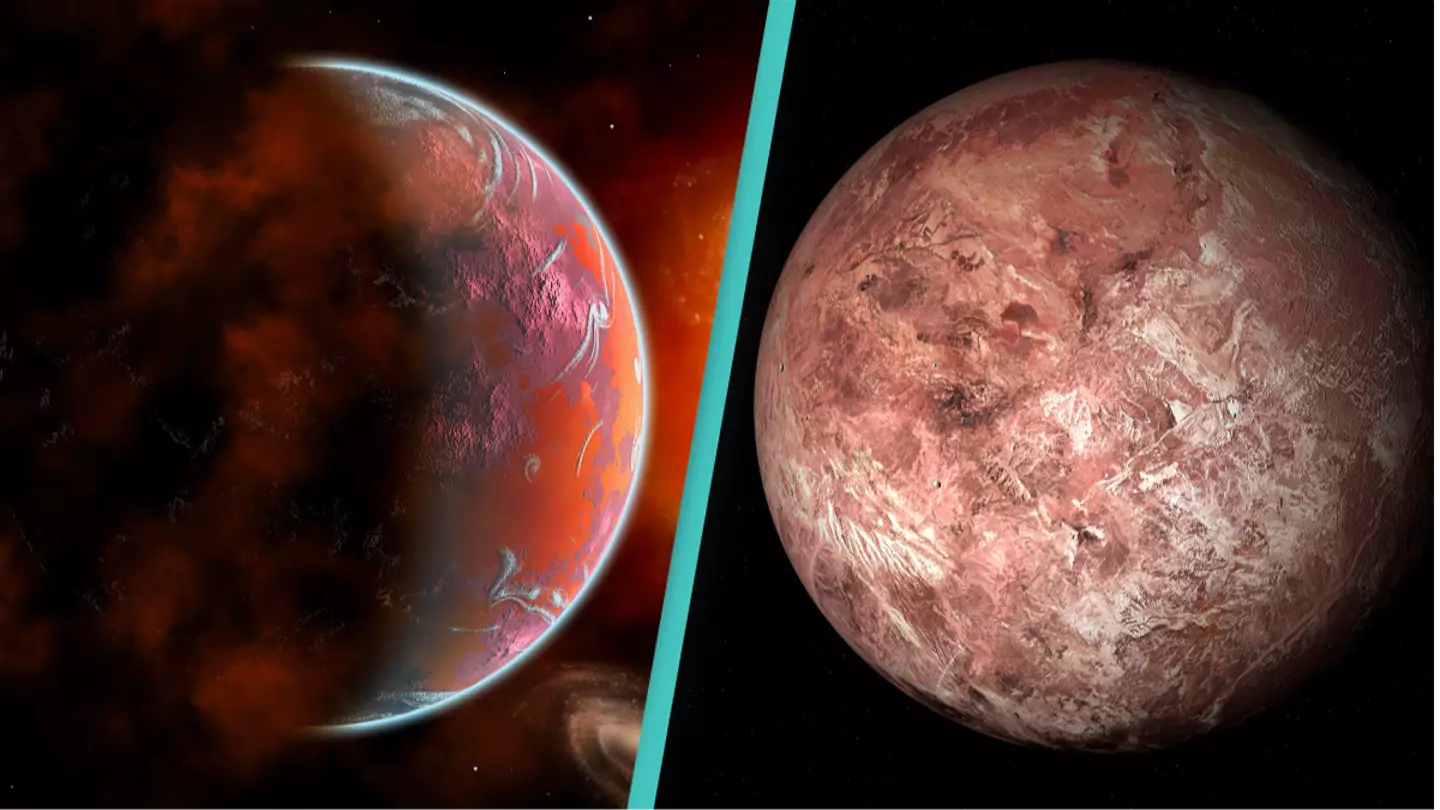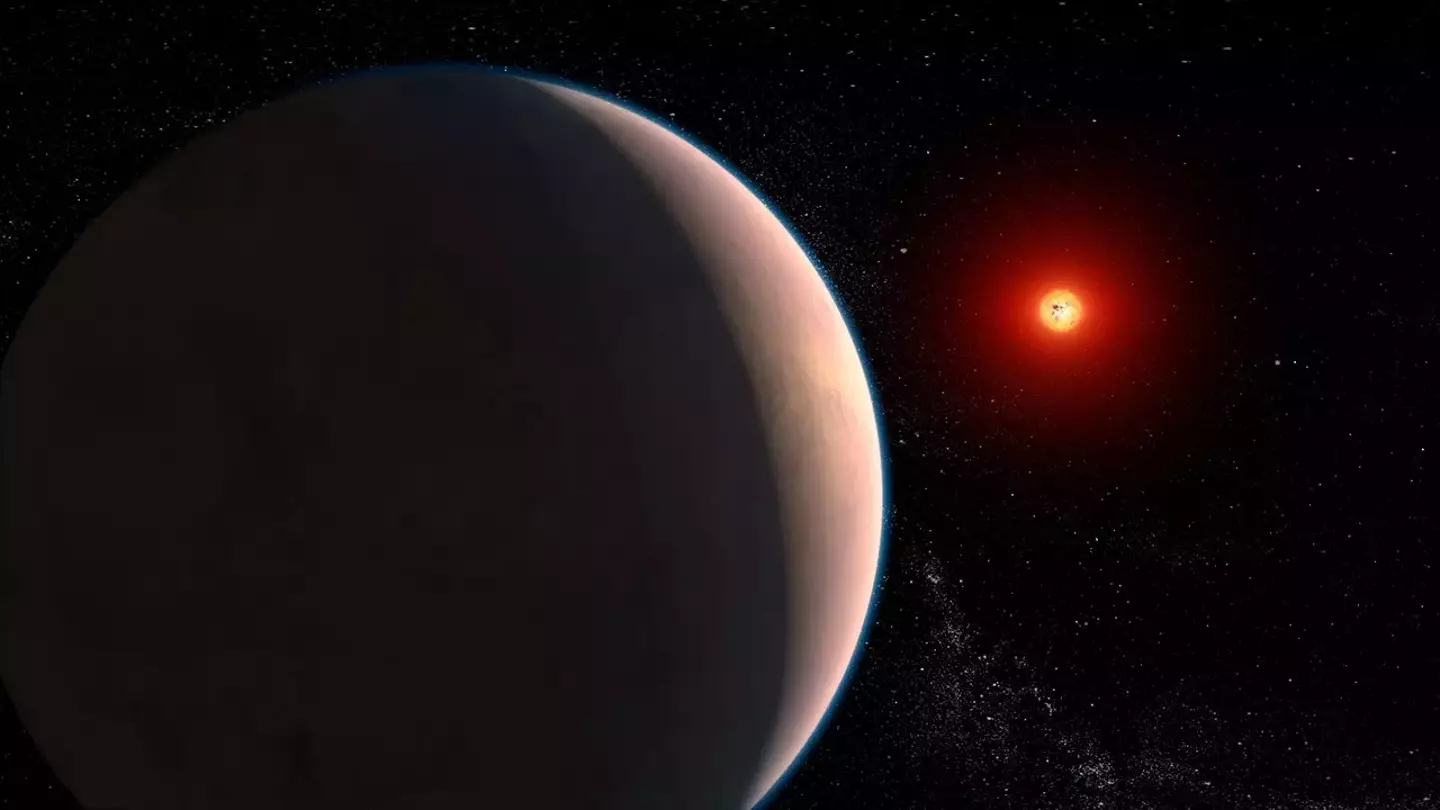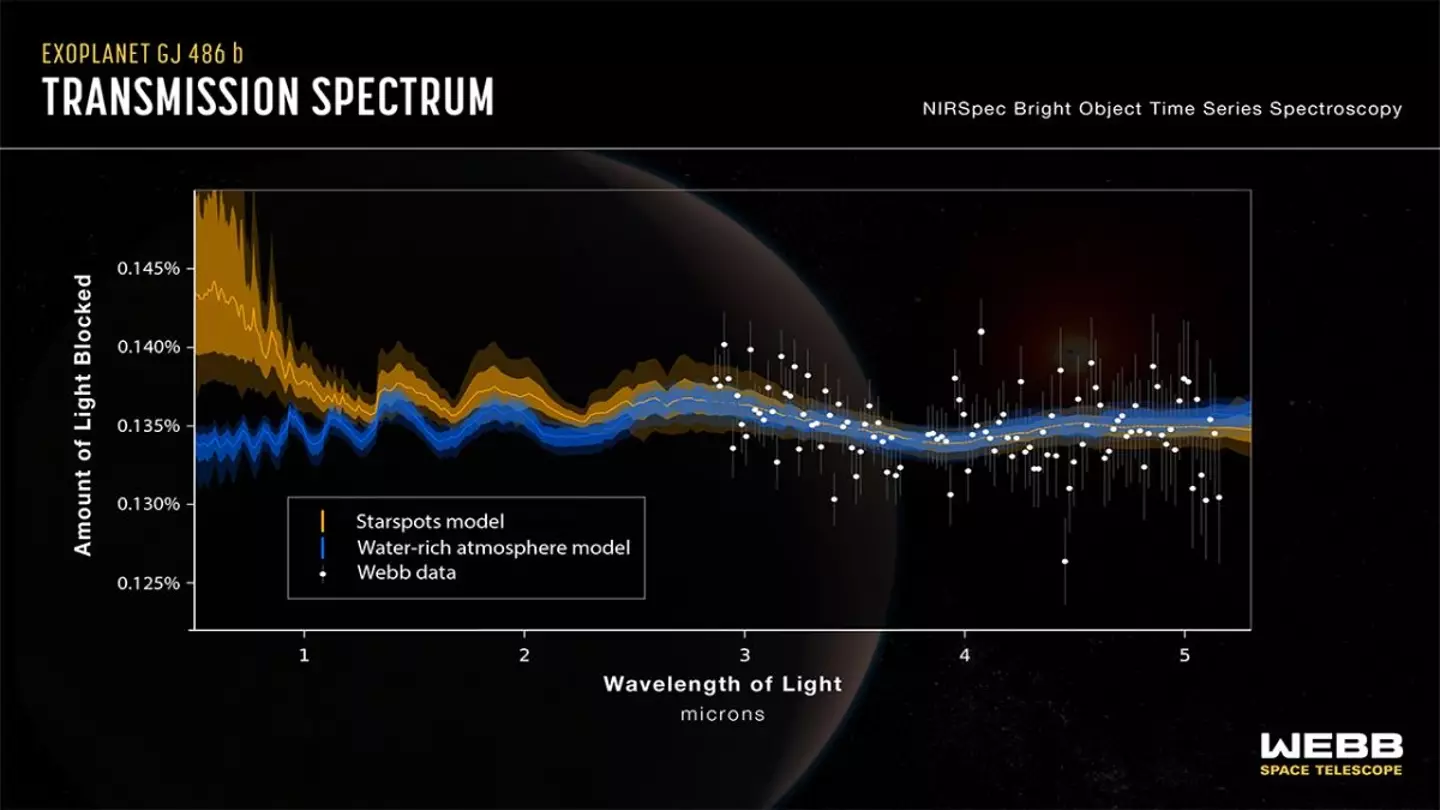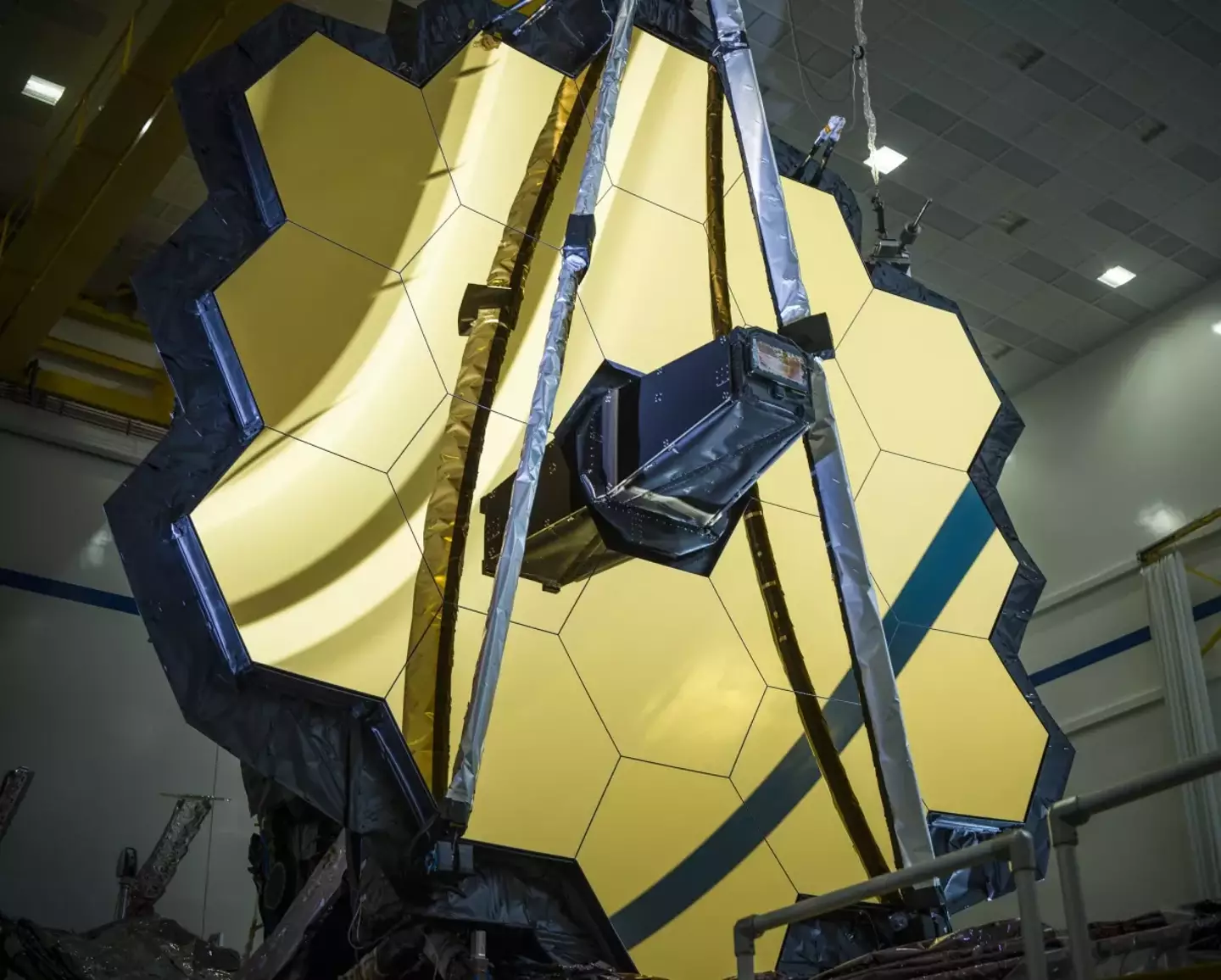
Scientists are currently on the verge of making a major discovery after water vapor was detected from another alien planet.
The James Webb Space Telescope are close to finding a huge detail about a possible extra-terrestrial presence in the universe and whether other planets could, in fact, support life.
Researchers have confirmed that if they were to discover the presence of an atmosphere on the planet, it would be a mammoth breakthrough for exoplanet exploration.

Advert
NASA astronomers used the state of the art telescope to observe levels of water vapor around the distant rock-strewn planet.
If any was found, it could indicate the possibility of an atmosphere surrounding the extrasolar planet, or exoplanet.
The research was key in developing scientists' search for other habitable planets outside of Earth's own solar system.
"Water vapor in an atmosphere on a hot rocky planet would represent a major breakthrough for exoplanet science," principal investigator behind the findings and Johns Hopkins University Applied Physics Laboratory researcher, Kevin Stevenson confirmed in a statement.
However, while the news is an exciting leap towards progress, scientists have warned that it could just be originating from the world's host star, as opposed to the rocky planet itself.
And, as you can imagine, the universe's hottest star is clearly not a habitable place to live in.
Stevenson added: "But we must be careful and make sure that the star is not the culprit."

The exoplanet in question, GJ 486 b, orbits a red dwarf star in under 1.5 Earth days, at a whopping 26 light-years away.
According to NASA, GJ 486 b is a whole three times the mass of Earth, and is 30 percent larger.
Red dwarfs are known to create possible inhospitable environments, due to emitting extremely powerful ultraviolet and X-ray radiation when young, which quite literally blasts away any atmosphere of planets nearby.
It is for this reason why the scientists were so eager to figure out if the planet, which resides in such a violent environment, could somehow find a way to form an atmosphere and keep on to it long enough for life to start forming on it.
Bearing in mind that the first evidence of life beginning on Earth took around a billion years.
To try and answer the question, the astronomers pointed the James Webb Space Telescope, alongside its Near-Infrared Spectrograph (NIRSpec) instrument, toward GJ 486 b.
They collected the data as the planet transited its star, recording two transits that lasted an hour.

Despite the exoplanet's close proximity to the star, as well as having a temperature of 800 degrees Fahrenheit (430 degrees Celsius), the researchers were excited to find the traces of water vapor.
Research lead author and University of Arizona astronomer, Sarah Moran, explained: "We see a signal and it's almost certainly due to water.
"But we can't tell yet if that water is part of the planet's atmosphere, meaning the planet has an atmosphere, or if we're just seeing a water signature coming from the star."
Guess you could say the astronomers are, quite literally, on the edge.
Topics: News, World News, US News, Science, Space, NASA, Aliens